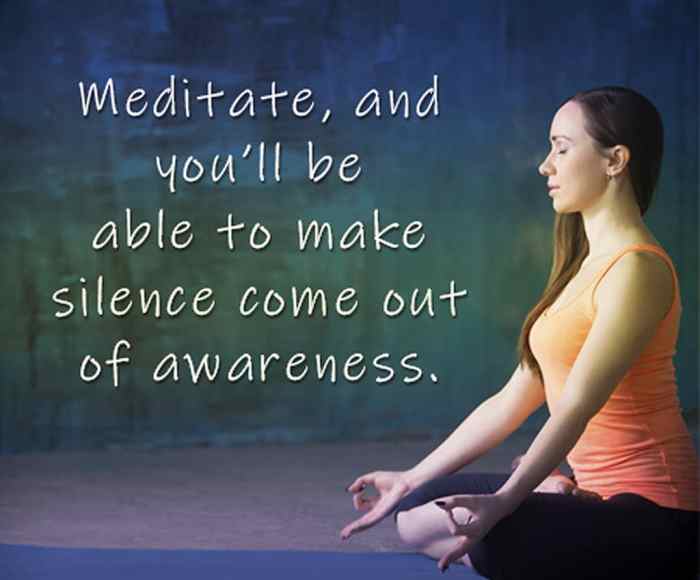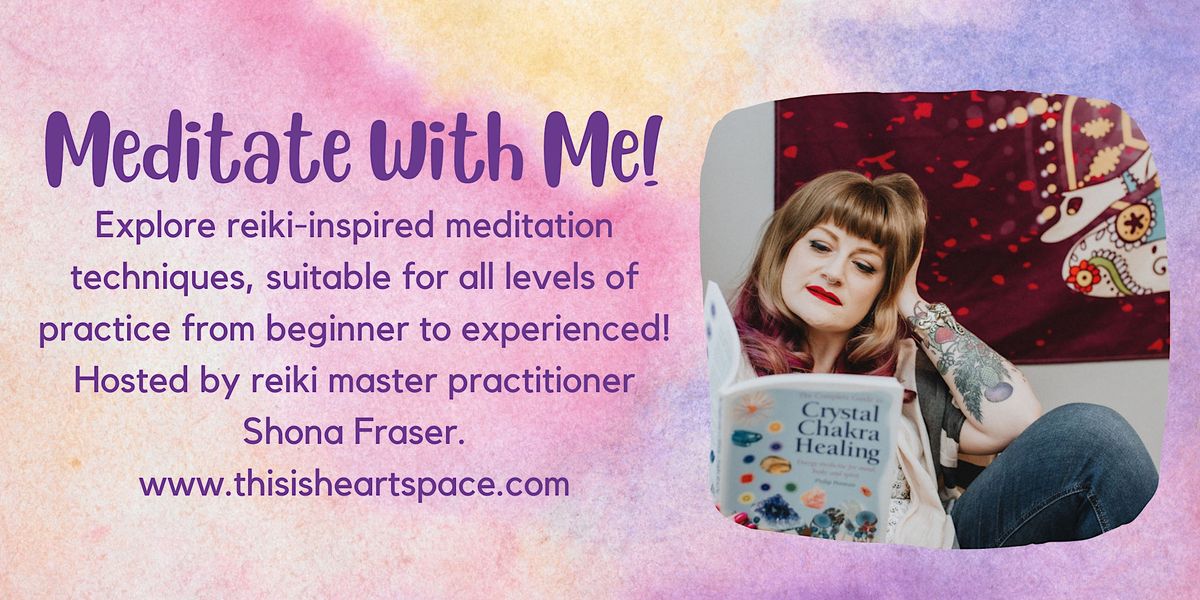How to Meditate for Strengthening Your Personal Boundaries opens the door to a transformative journey where mindfulness meets self-awareness, offering insights into enhancing mental well-being.
Explore the power of meditation in setting healthy boundaries and boosting confidence in maintaining them.
Introduction to Personal Boundaries

Personal boundaries are the invisible lines we draw around ourselves to protect our physical, emotional, and mental well-being. They define the limits of what we are comfortable with and what we are not willing to accept from others.
Our next topic focuses on How to Meditate to Strengthen Your Mind: 5 Tips. The expert emphasizes the importance of consistency and patience in developing a strong and resilient mind through meditation practices.
Having strong personal boundaries is crucial for maintaining a healthy sense of self and preventing feelings of resentment, anger, or burnout. When our boundaries are weak, we may find ourselves saying yes to things we actually want to say no to, or allowing others to treat us in ways that are disrespectful or harmful.
The Role of Meditation in Strengthening Personal Boundaries, How to Meditate for Strengthening Your Personal Boundaries
Meditation is a powerful tool that can help us become more aware of our thoughts, emotions, and physical sensations. By practicing mindfulness and self-reflection during meditation, we can begin to understand where our boundaries lie and what behaviors or situations may be crossing them.
- Meditation can help us tune into our intuition and inner wisdom, guiding us to make decisions that honor our boundaries.
- Through meditation, we can cultivate a sense of calm and centeredness that allows us to respond to boundary violations in a clear and assertive manner.
- Regular meditation practice can increase our self-confidence and self-esteem, making it easier for us to communicate our boundaries effectively to others.
Understanding Meditation for Strengthening Boundaries

Meditation can be a powerful tool for individuals looking to strengthen their personal boundaries. By engaging in regular meditation practices, individuals can become more self-aware and in tune with their thoughts, emotions, and physical sensations. This heightened sense of self-awareness can help individuals recognize when their boundaries are being crossed and empower them to take action to protect and reinforce those boundaries.
Lastly, we delve into How to Meditate to Strengthen Your Mindfulness Practice. Our guest highlights the significance of mindfulness in meditation to enhance focus, awareness, and overall mental well-being.
Connection Between Mindfulness and Setting Healthy Boundaries
- Practicing mindfulness through meditation can help individuals tune into their inner experiences and become more present in the moment. This increased awareness allows individuals to recognize when their boundaries are being tested or violated.
- Setting healthy boundaries requires a deep understanding of one’s own needs, values, and limits. Through meditation, individuals can gain clarity on these aspects of themselves and develop the confidence to assert their boundaries when necessary.
- Mindfulness meditation also cultivates a sense of calm and centeredness, which can be invaluable when faced with situations that challenge personal boundaries. By staying grounded in the present moment, individuals can respond thoughtfully rather than react impulsively.
Techniques for Meditating to Strengthen Personal Boundaries

To effectively strengthen your personal boundaries through meditation, it is essential to practice specific techniques that promote self-awareness, mindfulness, and emotional regulation. By incorporating these techniques into your meditation sessions, you can cultivate a greater sense of control over your boundaries and protect your mental and emotional well-being.
Mindfulness Meditation
- Begin by finding a quiet and comfortable space to sit or lie down.
- Close your eyes and focus on your breath, taking deep inhales and exhales.
- Notice any thoughts, emotions, or sensations that arise without judgment.
- Gently redirect your attention back to your breath whenever you get distracted.
- Practice this mindfulness meditation regularly to develop a heightened awareness of your internal experiences and external triggers that may affect your boundaries.
Loving-Kindness Meditation
- Sit in a comfortable position and close your eyes.
- Direct feelings of love, compassion, and kindness towards yourself.
- Extend these feelings towards others, including those who may have crossed your boundaries in the past.
- Visualize yourself surrounded by a bubble of light and love, protecting you from negative influences.
- Repeat positive affirmations such as “I deserve to have my boundaries respected” to reinforce your sense of self-worth.
Visualization Meditation
- Imagine yourself surrounded by a strong and impenetrable boundary, like a force field or a protective shield.
- Visualize any negative energy or unwanted intrusions bouncing off this boundary, unable to penetrate or disturb your inner peace.
- Engage all your senses in this visualization, feeling the strength and resilience of your boundaries.
- Practice this visualization regularly to reinforce the concept of boundaries as a source of strength and protection.
Benefits of Meditating to Strengthen Personal Boundaries
Meditation can offer numerous advantages when it comes to enhancing personal boundaries. By incorporating meditation into your boundary-setting practices, you can experience benefits such as improved self-esteem, increased confidence, and better emotional regulation.
Today, we have the privilege of interviewing a meditation expert who will share with us How to Meditate to Calm Your Mind in 5 Easy Steps. According to our guest, these simple techniques can help anyone achieve a state of inner peace and tranquility.
Enhanced Self-Awareness
- Through meditation, individuals can develop a deeper understanding of their thoughts, emotions, and triggers, which is essential for setting and maintaining healthy boundaries.
- Mindfulness practices can help individuals recognize when their boundaries are being crossed and take appropriate action to protect themselves.
Improved Emotional Resilience
- Regular meditation can strengthen emotional resilience, enabling individuals to respond to boundary violations calmly and assertively.
- By cultivating a sense of inner peace and calm through meditation, individuals are better equipped to handle challenging situations and uphold their boundaries effectively.
Increased Self-Confidence
- Practicing meditation can boost self-confidence, empowering individuals to communicate their boundaries clearly and assertively without fear of judgment.
- Enhanced self-esteem resulting from meditation can lead to a stronger sense of self-worth, making it easier to prioritize personal boundaries.
Challenges and Solutions

When meditating to strengthen personal boundaries, individuals may encounter various challenges that can hinder their practice. These obstacles can make it difficult to stay consistent and fully reap the benefits of meditation. However, there are strategies and tips that can help overcome these challenges and ensure a more effective meditation practice.
Distractions and Intrusive Thoughts
One common challenge during meditation is dealing with distractions and intrusive thoughts that can disrupt focus and mindfulness. To overcome this, try acknowledging these thoughts without judgment and gently guiding your attention back to your breath or chosen focal point. Practicing mindfulness and acceptance can help in letting go of these distractions and maintaining focus.
Impatience and Frustration
Another challenge is feeling impatient or frustrated with the meditation process, especially if immediate results are not achieved. It’s important to understand that building stronger personal boundaries through meditation is a gradual process that requires consistency and patience. Remind yourself that each session contributes to your overall well-being and growth, even if progress seems slow.
Self-Doubt and Resistance
Self-doubt and resistance may arise when facing uncomfortable emotions or confronting deeper issues while meditating. It’s essential to approach these feelings with compassion and self-acceptance. Instead of resisting or pushing these emotions away, try to observe them non-judgmentally and explore their underlying causes. Embracing vulnerability can lead to greater self-awareness and personal growth.
Time Management and Commitment
Finding time for regular meditation practice can be challenging, especially with busy schedules and competing priorities. To overcome this obstacle, consider integrating short meditation sessions into your daily routine, such as during breaks or before bedtime. Setting realistic goals and committing to a consistent practice can help make meditation a sustainable habit.
Real-Life Applications and Examples: How To Meditate For Strengthening Your Personal Boundaries

In real-life scenarios, meditation has proven to be a powerful tool in helping individuals reinforce their personal boundaries. By cultivating a sense of inner peace and self-awareness, meditation enables people to better understand their needs and limits, leading to healthier boundaries in various aspects of life.
Workplace Boundaries
- One example of meditation helping with personal boundaries is in the workplace. By practicing mindfulness meditation, employees can develop a stronger sense of self-control and emotional regulation, allowing them to set clear boundaries with coworkers and supervisors.
- Long-term effects of meditation in the workplace include improved communication skills, increased productivity, and reduced stress levels, all of which contribute to a healthier work environment with well-defined boundaries.
Relationship Boundaries
- Meditation can also be beneficial in setting boundaries in relationships. By meditating regularly, individuals can become more attuned to their own emotions and needs, making it easier to communicate and assert their boundaries with partners, friends, and family members.
- Over time, meditation can lead to increased self-confidence, better conflict resolution skills, and improved empathy, all of which are essential for maintaining healthy boundaries in relationships.
Self-Care Boundaries
- Another area where meditation can have a significant impact is in setting boundaries around self-care. By prioritizing meditation as a daily practice, individuals can cultivate a strong sense of self-worth and self-respect, making it easier to say no to things that do not align with their values and priorities.
- The long-term effects of meditation on self-care boundaries include increased resilience, improved mental health, and a greater sense of balance and well-being, all of which are essential for maintaining a healthy and fulfilling lifestyle.
Discover the profound impact of meditation on strengthening personal boundaries, paving the way for a more empowered and resilient self.